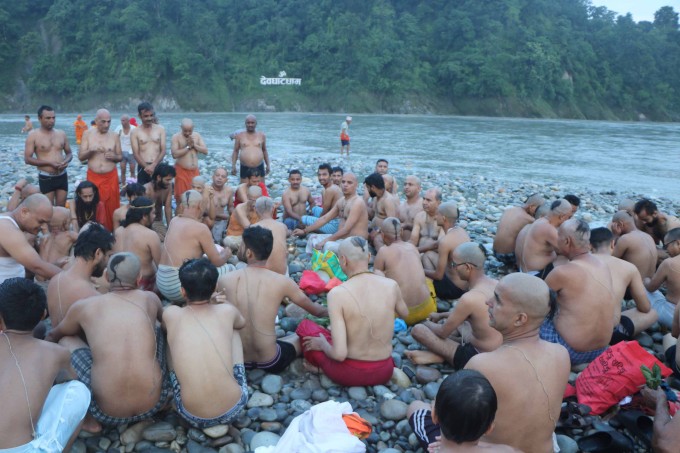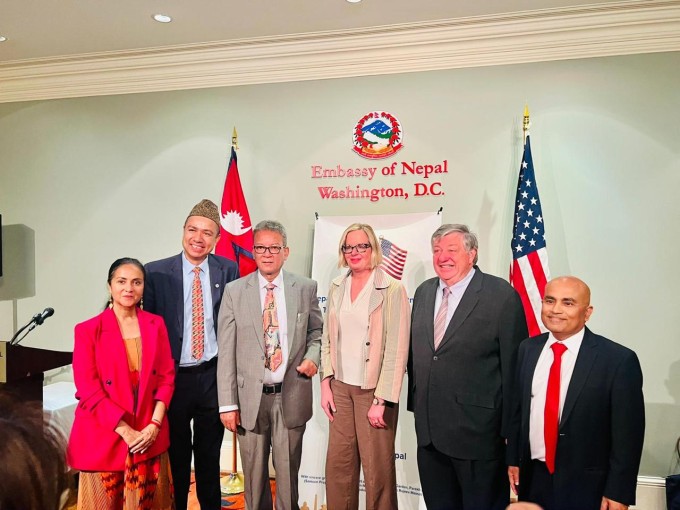At eight years old, Mengmeng is as familiar with eyeshadow and lipstick as she is with textbooks and toys.
The primary school student in Shanghai is a part-time child model and has appeared in various advertisements and kids’ fashion shows since starting kindergarten. The shoots or events often require Mengmeng to wear make-up.
Her mother, Candice Yang, said she likes to cultivate a sense of aesthetics in her daughter. “Girls should definitely learn to appreciate beauty during childhood,” she said.
Families like Mengmeng and her mother have contributed to a dramatic rise in the consumption of kids’ cosmetics products in China. The trend contrasts sharply with other parts of society, such as schools that enforce strict appearance guidelines, including standardising the students’ hairstyles.
According to Kaola, a retailer of imported goods, sales of kids’ make-up on its platform were up by more than 1,200 per cent in May 2020 from the same period in 2019, while total sales as of July last year were triple those a year earlier.
Chu Zhaohui, a senior researcher at the National Institute of Education Sciences, said the industry’s growth is driven by a widespread ambition on the part of parents to make their children stars.
“As social media platforms thrive, many people have become famous via live streaming. Many parents hope for the same outcome for their kids; so they dress them up, apply cosmetics and promote them online,” he said.
On some social media apps, a search for “children wearing cosmetics” results in numerous videos of young kids practising their make-up, attempting to give themselves a “princess look” and the like.
In one video on the lifestyle sharing platform Xiaohongshu, a girl who appears to be about seven years old gives a tutorial to viewers about how to skillfully apply a look “that’s suitable for stage performance within three minutes”.
Chu said the rising popularity of kids’ cosmetics is due to China’s rising middle-class families investing more in extracurricular activities such as singing and dancing, which often require the use of make-up.
“In the context of China, I think this is generally a good thing. We have overly focused on the academic performance of students, so it’s good when they’re allowed to do something else, to diversify,” he said.
“But there also should be a line for this. If we cross this line, it could not only consume too much of the kid’s time but also mislead them to be too focused on people’s appearance,” he added.
Liu Xiaoyun, a mother of two girls in Beijing, said she did not ban her daughters, one aged nine and the other four, from occasionally experimenting with her cosmetics because she wanted to “protect their curiosity”.
“But honestly, I also worry that if they get used to cosmetics they will judge others based on their appearance, or they will think you’re only pretty once you wear make-up,” she said.
For Yang, Mengmeng’s mother, the safety of the ingredients is a bigger concern.
“Make-up artists for kids’ fashion shows basically use good quality brands, but I also discovered they are mostly designed for adults,” she said.
“I know it’s not good for kids. But I have no choice,” she said.
Many children’s cosmetics are sold as toys, and their ingredients are not specified on the labels.
The owner of Disney Princess, the most popular brand in China, calls itself a “toymaker” on its official website. Guangdong Kailiti Science & Technology Co, which owns a series of other brands such as Barbie Girl, said in a post on its WeChat account that a toys exhibition in Shenzhen is “the most important purchase platform of the sector”.
In China, children’s cosmetics are defined as those for kids aged 12 and under. Dozens of brands and thousands of products under this category are available on major e-commerce platforms, with prices varying widely.
Lu Yao, a dermatologist at Chengdu Women’s and Children’s Central Hospital, said he has recently received some young patients who had an allergic reaction to make-up worn during celebrations of China’s Children’s Day holiday, which falls on June 1.
He said that kids are more likely to be susceptible to harmful ingredients in make-up because of their immature skin barrier, immune system, endocrine system, and a tendency for hand-to-mouth contamination.
“Therefore, in general, make-up is more harmful to children than adults,” he said.
“But based on existing research globally, we have good reason to believe that it’s safe for a child to use qualified products on small parts of the skin occasionally ” less than once a month,” he added.
READ ALSO:







